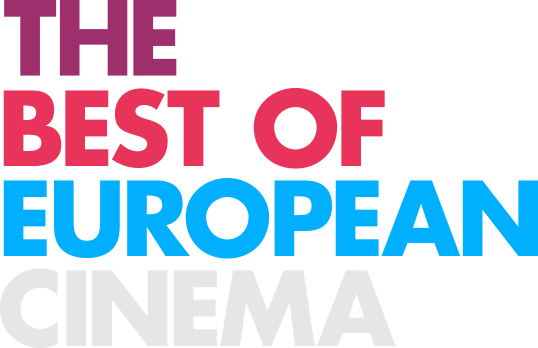Future Frames 2017 Interview: Joren Molter (Director of Greetings From Kropsdam)
Netherlands born filmmaker Joren Molter has been making films from an early age and is currently a student at the Netherlands Film Academy. His latest film Greetings From Kropsdam is a dark and satirical take on village life of which you can read a review HERE.
Already proving popular on the circuit with screenings at the likes of Warsaw and Clermont-Ferrand, Greetings from Kropsdam is preparing to screen in Karlovy Vary as part of European Film Promotion's Future Frames. Cineuropa Shorts caught up with Molter to find out how his past influenced the film.
Cineuropa Shorts: Where did the inspiration for Greetings From Kropsdam first come from?
Joren Molter : For me Greetings from Kropsdam is about the human mechanism that makes a whole group turn against one individual. What I think is fascinating about that mechanism is that people in a group cross their limits far more than they would do as individuals. It’s a universal mechanism that happens in every layer of our society. In The Netherlands there is a group of people who are against the refugees. You see the same mechanism is happening there. How people can radicalize in a group frightens me very much.
I grew up in a village like Kropsdam. When I was thirteen I started playing in the theatre and experimenting with making movies. Unfortunately the other boys in the village, who were busy with playing soccer, listening to hardcore music and collecting Pokémon cards, didn’t accept those kind of things. I didn’t fit in the picture that they had of what a boy should do. They thought that I was gay because I was interested in acting. In that period of my life I had a feeling of oppression about the village. That’s what I wanted to make a film about it.
CS: The dry humour in the film reminds me of the likes of Roy Andersson and Aki Karusmaki. Were these directors influences upon you? And is there anyone else who is a big influence?
JM: I’ve seen some films from them, but they weren’t a big influence for this film. As I mentioned, in Greetings from Kropsdam I wanted to focus on the human mechanism instead of the inner conscience of Lammert. We are looking at Lammert from a distance, seeing how he’s getting bullied, instead of going into the scene. If we would live in the same village as Kropsdam we would probably do the same. We would choose the side of the villagers and do nothing because that’s the easiest way to survive. That’s why I thought ‘plan-séquence’ would be the most fascinating perspective to tell this story.
CS: Where did you film? It’s very intriguing as sometimes it feels real and others it feels like a theatre set. Was this playing with reality and unreality deliberate?
JM: Of course that was deliberate. Almost every shot in the film is shot on a different location. I was looking for a lonely village with almost 200 meters of land between every house. The quietness and the loneliness is a metaphor for the lone character of Lammert. In Kropsdam, time has been standing still for years. We shot everything on location in the province where I grew up and we didn’t build anything in a set. To get the ‘doll-house-poppy’ feel in the cinematography we used tiltshift lenses. These are lenses that manipulate the perspective of the falling angles. For the cinematography we where inspired by painters who visited The Netherlands in the 18th century to paint the skies there. We wanted to create a living painting where the gaze of the viewer is determined by the mise-en-scene.
CS: Where did you find your cast, especially Lammert.
JM: I wanted to make this film with locals because I was looking for an authentic feel in the casting. It wouldn’t feel respectful for me to make a film about villagers who are played by actors from Amsterdam. In the province of Groningen they also talk with the Gronings dialect. You can compare this with the difference between the American language and the Texan dialect. But in the English subtitles it’s hard to hear the difference in the dialect. There is nobody who is good at speaking the Gronings dialect so that was also a reason to use non-actors in the film.
While the casting company was doing the casting for Greetings from Kropsdam in the province of Groningen, there was a man who walked into the room. He didn’t have any experience playing for the camera. The first thing that I thought was: This is Lammert! It’s just the same man. That’s how I found Lammert.
CS: What does being part of Future Frames mean to you? What do you hope to get out of Karlovy Vary?
JM: For me it’s very special to be selected in Future Frames. It means a lot to me. I hope to meet interesting people who I can learn from. And I hope that will make it easier to get financing for future projects.
CS: What are working on next?
JM: We just got financing from the Dutch Filmfund for a new film that we will shoot in couple of months. We are also busy with a television movie of 50 minutes that we hope to shoot in January. Both films I’m working on is with the same screenwriter of Greetings from Kropsdam, Britt Snel. We are also writing for my first feature film.
28 June 2017, by Laurence Boyce






